[BONUS] nothing here but Johnny (A Very Shining New Year) - issue 242 - December 31st, 2023
nothing here but Johnny (A Very Shining New Year)
issue 242 - 31st December, 2023
CJW: Happy holidays everyone. For this year’s holiday bonus, we decided to go with The Shining, a classic of film and film horror from Stanley Kubrick, based on a classic horror novel from Stephen King. (Originally we picked it because I saw it on a list of NYE films, but I think that’s only because there’s some argument as to whether the party featured at the very end of the film was actually a NYE party despite being labelled as a 4th of July party. I only picked up on this too late, so… enjoy?)
DCH: If it helps I’m pretty sure the movie takes place entirely in the winter.
CJW: I’m not going to bother closely outlining the plot as we go, because you all know it well enough (thanks to the novel, the movie, or The Simpsons Treehouse of Horror episode) to follow along with the screenshots and commentary - Jack gets a job as the winter caretaker of the Overlook Hotel, where he and his family will be locked up alone for 5 months. The horrors of the hotel reveal themselves to his psychically gifted son Danny, while Jack is lost (or gives himself over) to the evils that dwell in that place, and tries to kill his family. What a touching story for the holidays!
Now let’s get started.
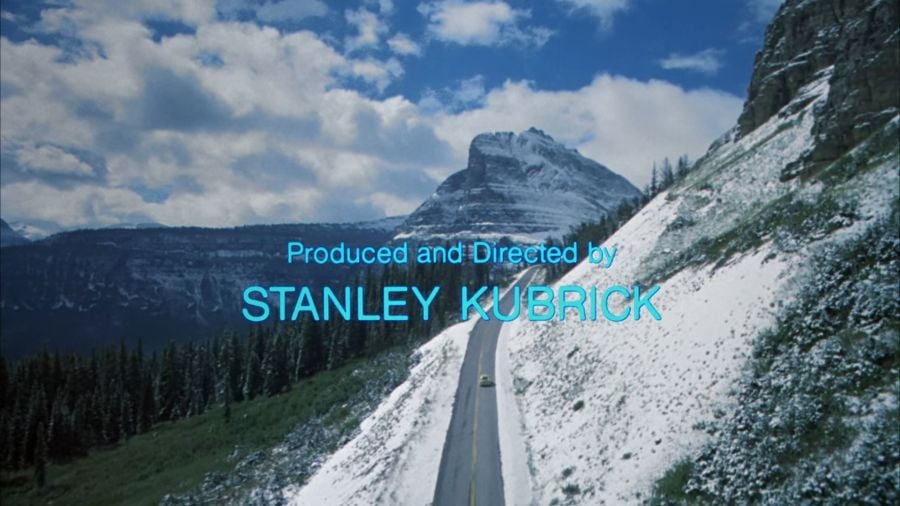
CJW: I’ve probably only watched this film two or three times before this viewing, and there are massive things I simply don’t remember from previous viewings. One of the main things is the soundtrack, which starts off strong and foreboding here and only gets better.
MJW: And I come to this having just listened to the audiobook for the [redacted] time. The whole viewing I wanted to say, ‘well, in the book it happens like this’, but restrained myself because I don’t wanna be insufferable.
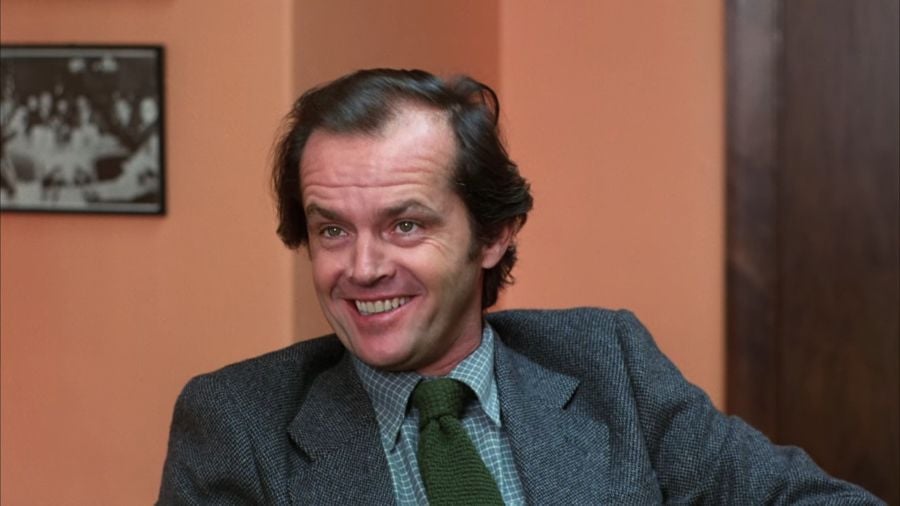
CJW: Jack Nicholson is phenomenal in this role, though it’s hard to say if it’s his penchant for acting with every muscle in his face, or if it’s the direction, but it’s hardly a subtle performance. Arguably the movie would be better served by a slow descent into madness, but from the very first moment Jack seems unsettled, barely able to tamp down on something (and something unpleasant) that’s happening beneath the surface. The movie also probably would have been better if it stuck a bit closer to the book in the opening sections. In the book we know early on that Jack is an alcoholic who once hurt Danny because he was drunk, and there’s a tension inside him - did he only hurt Danny because of the booze, or is he a violent piece of shit even when he’s sober?
We learn this eventually in the film, but a bit late to really matter.
MJW: I feel like Jack Nicholson’s performance devolves over time – by the end he’s kind of just running around grunting and bellowing. It makes a bit more sense knowing that the film was shot chronologically, because by the end of it (it took a year to film) he was so exhausted by doing endless takes that it’s all he has left in him.
CJW: I think that following the book a bit closer for this scene in particular would have been helpful. Book Ullman is a complete arsehole and Jack is barely able to hold it together, which is something Nicholson could have done brilliantly, but instead they made Ullman a totally pleasant man. Odd choice.
Also, I like that even in 1980, women be enjoying true crime - when Jack is told about the previous caretaker snapping and chopping up his wife and two daughters, his first thought is how much Wendy will enjoy hearing about it.
MJW: The women are known for enjoying murder in highly problematic ways.
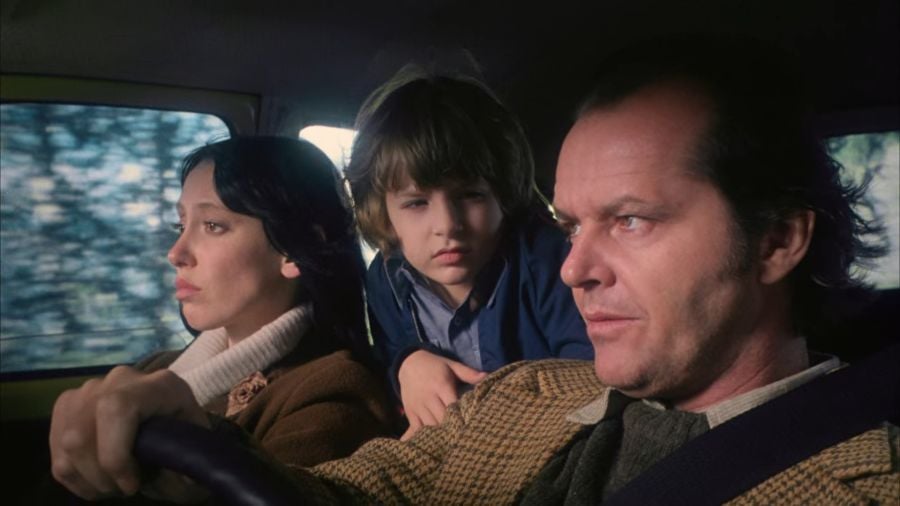
CJW: Child actors are often terrible, but Danny Lloyd is great as Danny (that’s 2/3 main characters who have the same name as the actors playing them). Let’s just hope he wasn’t terrorised like his adult co-stars…
MJW: According to IMDB, Danny Lloyd has very little recollection of filming and is now a biology professor who will throw college kids out of his class for bringing the film up. So good for him.
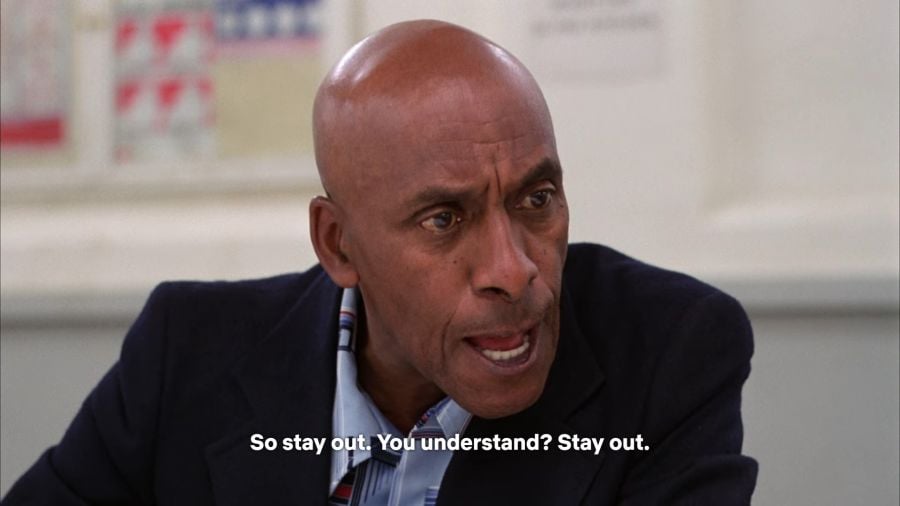
CJW: We all know children are notoriously good at not going into rooms you specifically tell them not to go into. Children respect the forbidden fruit. They are not tempted by it in the slightest.
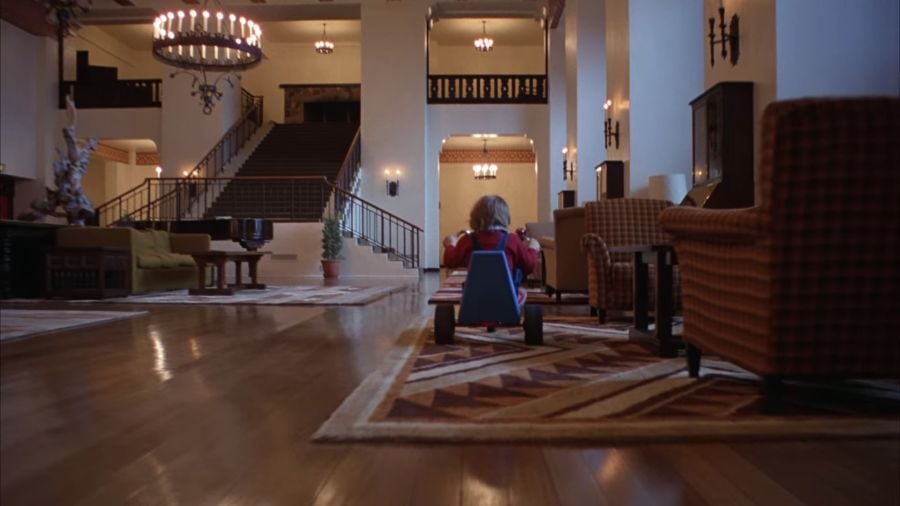
CJW: Look, I might complain about some aspects of the movie, but when it comes down to it, it’s still Kubrick, and he is one of the masters of cinema for a reason. There are so many incredible shots in this movie, like these flowing shots that follow Danny (both around the hotel here, and through the maze later) that brings us down to Danny’s perspective as he explores, and gives us a look at the spaces the characters will be moving through and between for the remainder of the film.
MJW: Look, this whole thing will just be me reciting interesting things I found on IMDB, but this was one of the first films to use the Steadicam, and these long, flowing shots work because of that. Are we watching Kubrick play with the new toy? It’s cool to think about being able to make shots like those work for the first time.
DCH: Yeah for sure. Kubrick was an early adopter (although a few directors beat him to the punch using it including Stallone for Rocky) and an avid enthusiast of the steadicam. But crucially he was also an inventor and designer of new tech in his own right. For Barry Lydon he worked with NASA and Zeiss to make special lenses to shoot in ultra low light settings. Which is important for the ambience of The Shining because he and cinematographer John Alcott shot pretty much the whole thing with available light.
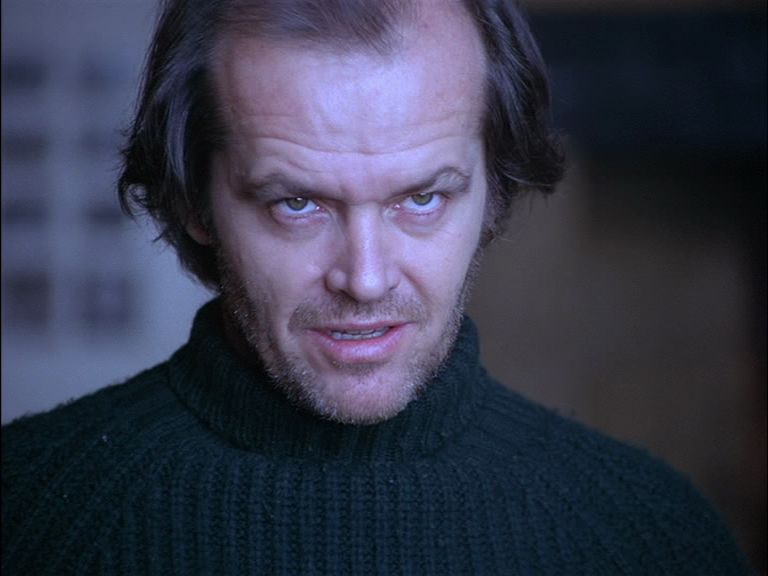
Another technique that was vital for evoking the sense of isolation so important to the movie was the unrelenting use of one-point perspective and symmetry enabled by wide angle shots throughout several key scenes. Together it all distorts space and depth and disorients the viewer even in the more mundane moments. It's really quite remarkable:
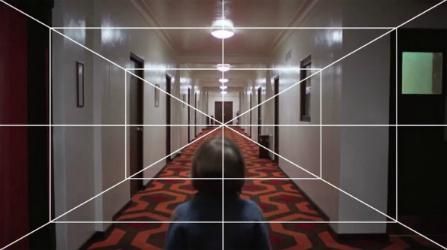
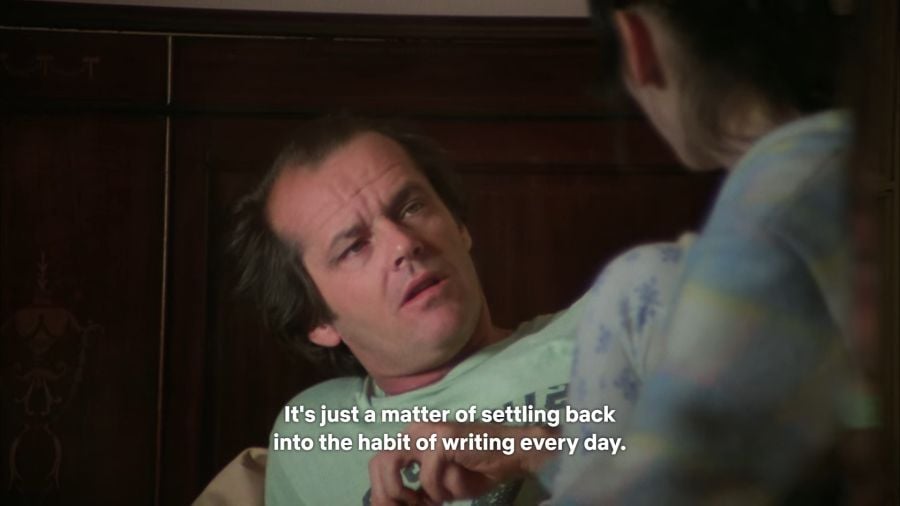
CJW: Every writer who’s ever experienced a block of any sort has been told this by a well-meaning partner, friend, or family member, and every one of them felt at least a shadow of the murderous rage that Jack does here. Though we tend not to channel it into anything but our stories.
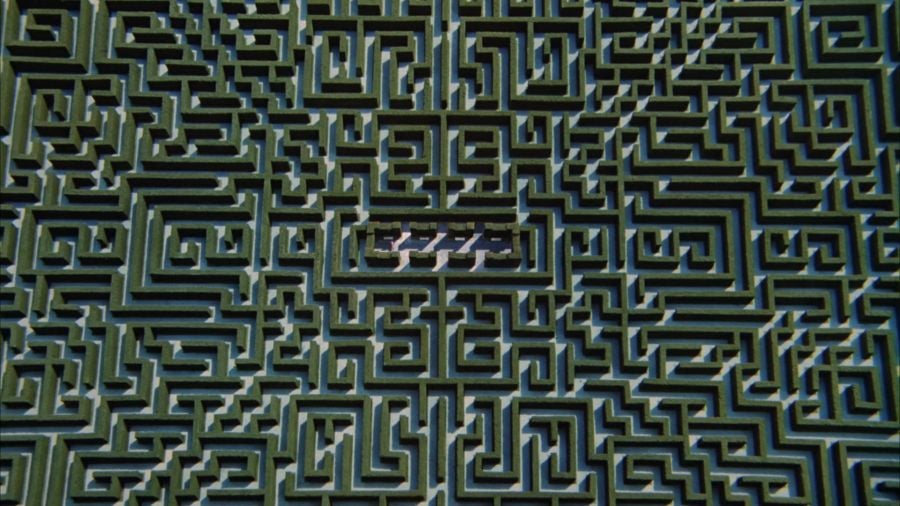
CJW: This is another example of Kubrick’s filmmaking expertise - the seamless transition from Jack looking over the model of the hedge maze to this shot high above the maze, with Wendy and Danny reaching its centre. The model-to-reality switch is reminiscent of what Ari Aster did with Hereditary, however many years later.
Another thing I thought was interesting right in the opening scene is the way Kubrick used the helicopter to get very smooth and steady shots of the car, the mountains, and the hotel. A lot of other filmmakers would use helicopters to emphasise speed and to add some chaotic energy (Tony Scott and Michael Bay being the two most obvious ones), but Kubrick’s use is closer to the slow drone footage that we see in just about every single horror movies these days, flying over a forest looking directly down, probably following a car as it winds along a lonely road.
DCH: I prefer the hedge maze in all of its metaphorical glory to the topiary animals from the book.
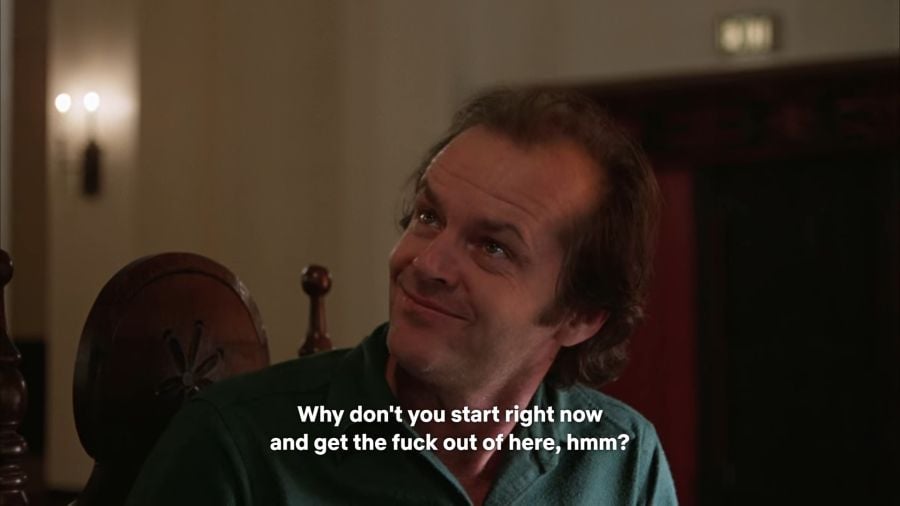
CJW: This is what I was referring to before. We haven’t been given any insight into Jack’s mind, and we also haven’t seen the Hotel ‘speaking’ to anyone but Danny, so there’s no real reason to view this scene, where Jack viciously snaps at Wendy because she bothers him during his writing session, as anything other than Jack being the arsehole that he really is.
It’s only immediately after this that we hear the high-pitched ringing of the Shining while Jack leers at his family as the first suggestion that something serious is going on here.
MJW: Film Jack Torrance is just an asshole, and film Wendy is a wet mop, which sucks because there are moments in this film where you can see what Shelly Duvall could have done with the role were it written and directed better. Book Wendy isn’t a paradigm of feminist strength or anything, but she is a lot more complex. I just wish the film gave us anything about why these characters are the way they are.
DCH: King’s animosity for the film is legendary. And a lot of his hatred for it comes down to how poorly film Wendy was depicted:
“Shelley Duvall as Wendy is really one of the most misogynistic characters ever put on film, she’s basically just there to scream and be stupid and that’s not the woman that I wrote about,” the writer stated.
LZ: In regard to Duvall’s character and all the testimonies that she was basically tortured on the set, I feel I have a hard time with that as someone who has Lars Von Trier as her favorite director. I mean, besides the fact that he is an asshole human, the guy always tortures everyone on set and not many people would work with him again (besides the recurrent ones like Charlotte Gainsbourg and Willem Dafoe). As much as this is problematic, I wonder how much an actor needs to be in distress or immersed in the narrative, and truly feeling themselves whatever their character might be, to communicate that to us. Do I mean that bad conditions to actors are worth the brilliant performance? No, but I guess some people need that – or it could be a masochist approach, like Lady Gaga, or sadomasochist like Jared Leto, both questionable actors imo.
CJW: Now the situation begins to slowly deteriorate, with Wendy discovering that the phones are down and radioing the ranger station to learn that they won’t be repaired until the spring. What I found interesting here is how much it says about modern filmmaking (streaming content creation more like it, more often than not), that I was almost surprised when they cut to the ranger station and showed the man on the other end of the line. A modern movie would write itself around this scene one way or another, just to save some money.
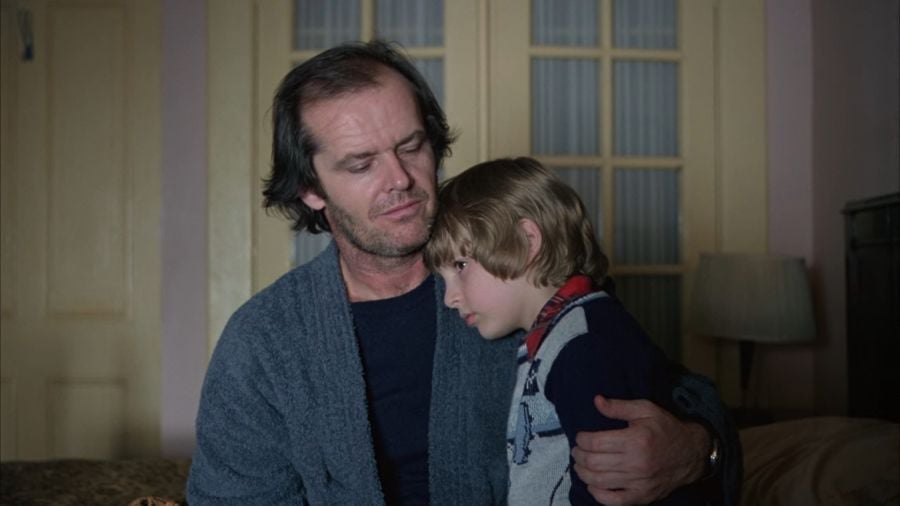
CJW: This is the first time we really get to see an interaction between father and son since the drive to the hotel, and through this we get to see that Danny knows enough about the hotel to know that his father liking the place is a very bad thing.
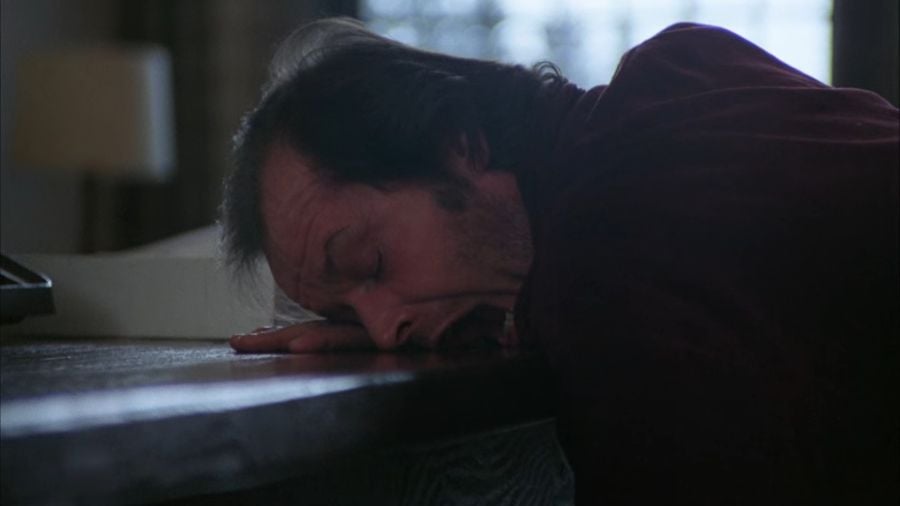
CJW: This part is kind of the inverse of the Ranger Station phone call in that I could imagine a modern filmmaker going to more effort in this scene and showing Jack’s dream in order to try and fake us out before showing him waking up screaming with Wendy shaking his shoulder. Here instead we rely solely on Jack Nicholson’s screaming and his recollection on waking, and it works incredibly well because Nicholson has the chops to pull it off.
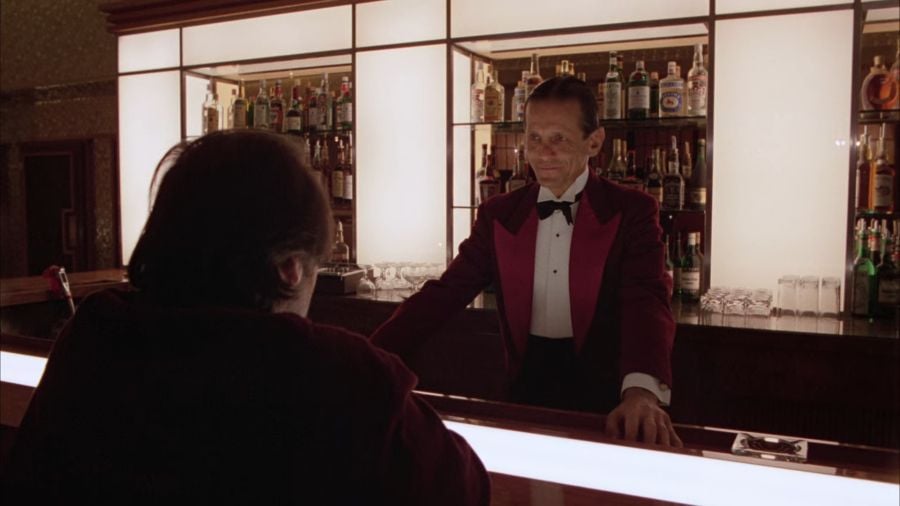
CJW: Sci-fi fans playing along at home will recognise Eldon Tyrell as Lloyd the bartender.
DCH: I had no fucking idea. Wild.
CJW: I saw Blade Runner recently (with the soundtrack performed live, it was fucking great), so it was fresh in my mind.
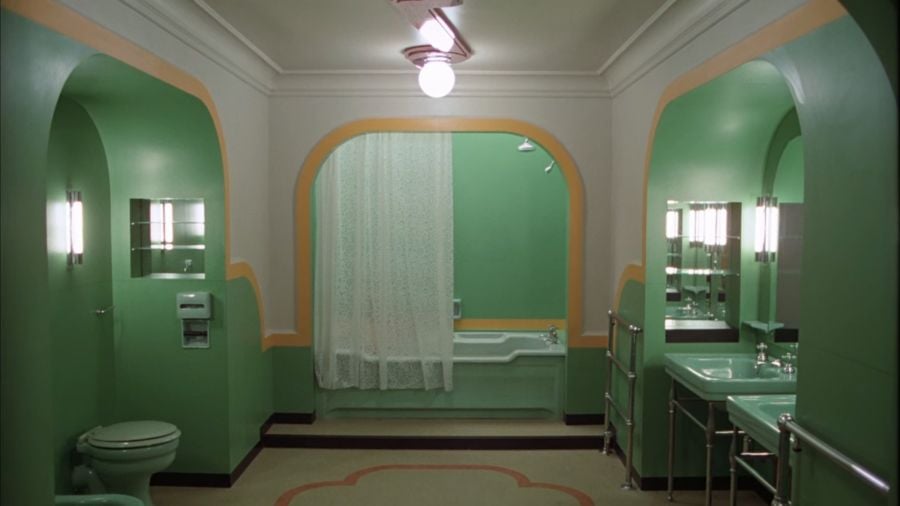
CJW: This is where the soundtrack really kicks up a notch, sounding almost contemporary - like something you might hear in a Nicolas Winding Refn film, though there it would be pure synth.
MJW: Apparently there was an entirely electronic score made by two female artists that was completed and then never used, which I would LOVE to hear behind the film.
CJW: Oh, wow, I definitely want to hear that.
DCH: I’ve heard that before too but have never heard copies of it anywhere. That said if anyone reading does want to listen to electronic music inspired by The Shining then I can’t recommend The Caretaker highly enough…
CJW: This is one of the most confronting scenes in the film, and the scene where Jack sides with the hotel against his family, embracing it even though it disgusted him in the moment.
MJW: Too scary. I closed my eyes for this bit. I also skip over the bathtub chapter in the book. No thankyou.
DCH: This is one of those changes from the book to the movie that get wildly overblown in some circles. In the book it's room 217. In the movie it's 237. Why the change? Conspiracists say because the moon is 237,000 miles away and that this is a sly acknowledgement / confession that he faked the moon landing.
LZ: To me, The Shining’s soundtrack and photography are already masterpieces on their own and having both featured at the same time like in this shoot just makes the point of how atmospheric, yet lively, these features are.
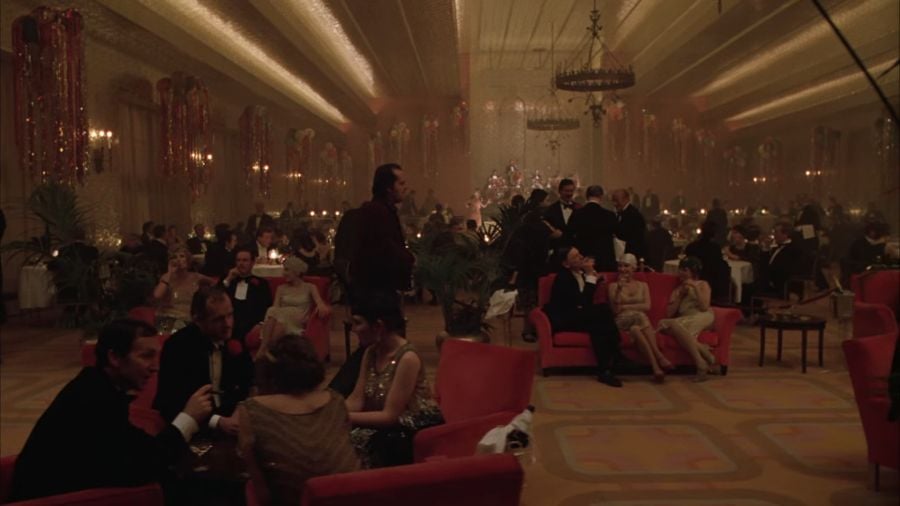
CJW: And here we get to (what I’m calling) the NYE celebrations that make this movie fit for our purpose.
Personally I’ve never liked NYE - the fact that the entire celebration is about the passage of time just makes me think about mortality and wasting time and other depressing thoughts - so the idea of being a ghost stuck haunting a NYE party is its own kind of horrifying. Though these ghosts all look rich and fancy, so maybe they’re enjoying themselves?
Lloyd the ghost bartender tells Jack “Your money’s no good here,” which I always thought sounded insulting (even though it’s the opposite of course).
Also worth noting here the exploration of racism in the film, seeing as this scene leads to a, uh, notable bathroom discussion with the ghost of the previous caretaker.
Quoting from Stanley Kubrick’s ‘The Shining’: American Deterioration Through Americana:
One of the most blatant examples of racism is when Jack is having a conversation with the ghost of the former caretaker of the Overlook, Grady. In this conversation (seen in the following image), Grady informs Jack that Jack’s son, Danny, is trying to bring an “outside” party into the situation at the Overlook. This outsider is the black chef at the hotel, Hallorann. [...] There is overt racism in the speech, but it is tied to American society through Kubrick’s choice of mise en scène. The colors red, white, and blue factor predominantly into this scene (and recur throughout the entirety of the film). The walls are vividly red. The bathroom fixtures and floor are bright white. And in the center of it all is Jack’s all-American blue jeans. Incorporating this particular element of Americana (i.e., patriotic colors) into such a racist scene implicates American society, through association, with racist ideals, which Kubrick implies is a factor contributing to a deteriorating society. He does so, as Greg Smith mentions in his essay “‘Real Horrorshow’: The Juxtaposition of Subtext, Satire, and Audience Implication in Stanley Kubrick’s The Shining,” by portraying the two black characters, Hallorann and Hallorann’s service station worker friend, Larry Durkin, as the only positive, adult male characters in the film (301-302). All the white, adult male characters in The Shining are deplorable and lack any redeeming qualities.
There’s more at the link, and it’s well worth the read.
DCH: I realise the movie came out in 1980 and was based on a book from 1977 but I still process the whole thing as a scathing prescient indictment of the Reagan era. And while I don’t have a whole lot to back that up with it’s nice to know that Kubrick said that he was a shit president.
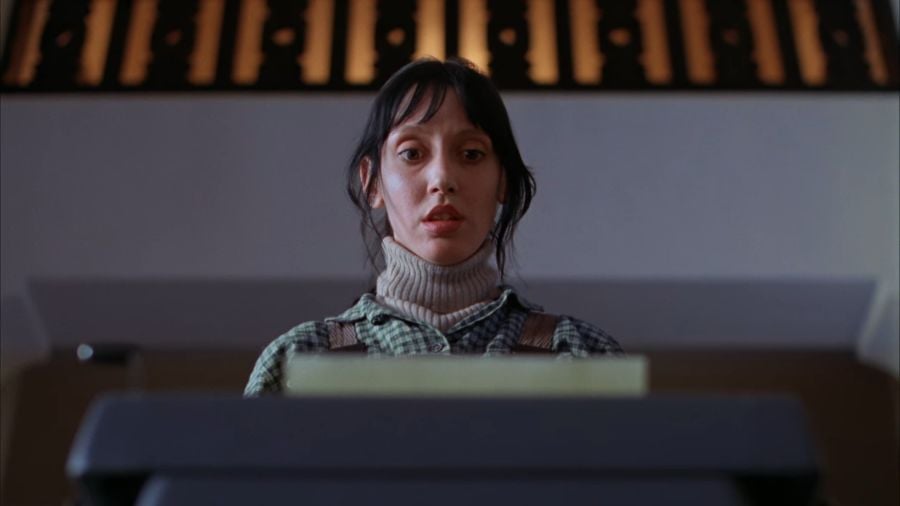
CJW: This is where Wendy’s true crime knowledge begins to pay off. After realising Jack has lost his shit, she beats him over the head with a baseball bat, and instead of running away screaming, she drags his unconscious ass to the pantry and locks him in.
It’s just a shame the hotel has other plans…
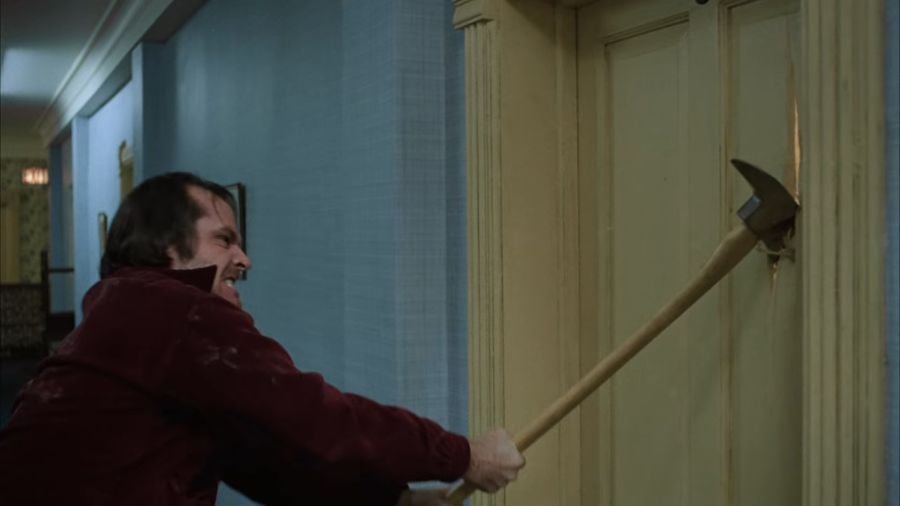
CJW: Released from his pantry prison, Jack has agreed to murder his family as the hotel wishes, and takes to it with gusto (and an axe). Apparently Jack Nicholson trained so hard for this scene that when they gave him a prop door to cut through he completely demolished it, so they had to give him real, solid doors just to make it look authentic.
MJW: Apparently he was also a volunteer firefighter? A job where you specifically axe doors to bits? Highly suspicious, if you ask me.
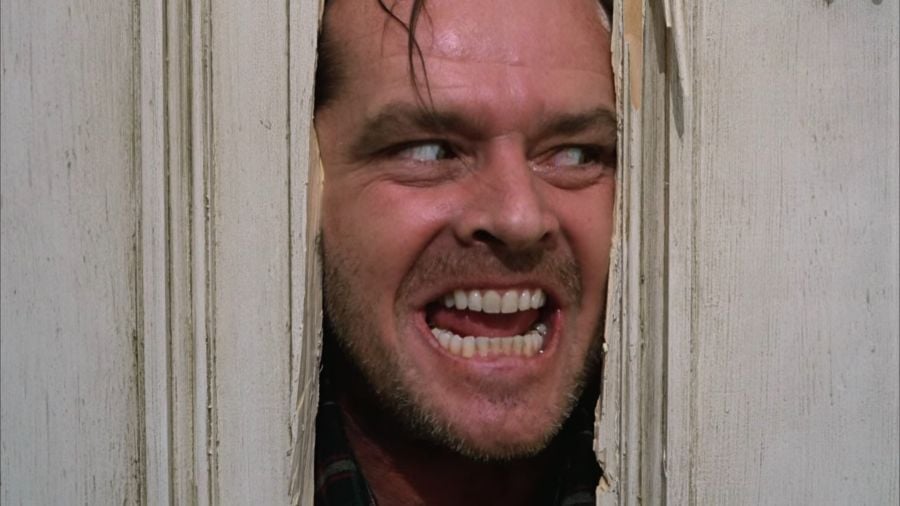
CJW: The image that defines this film.
MJW: I prefer blood elevator, myself.
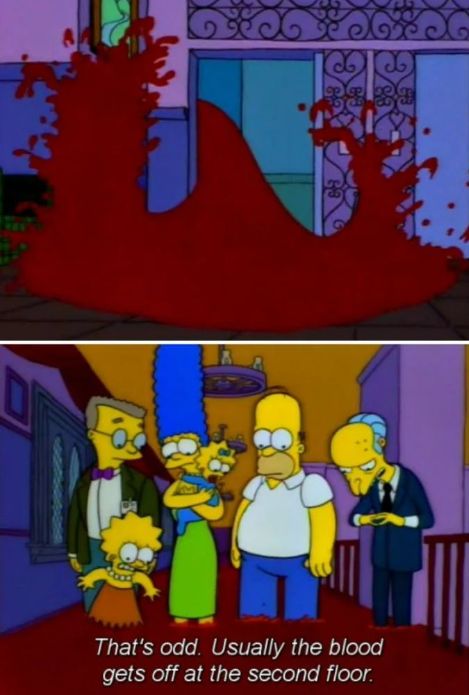
DCH: For me it's the creepy twins. Always the creepy twins. Shudder.
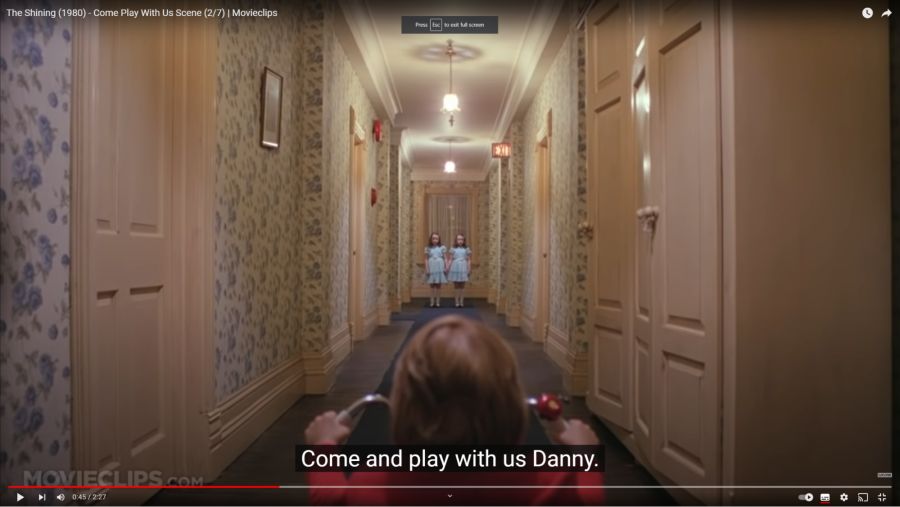
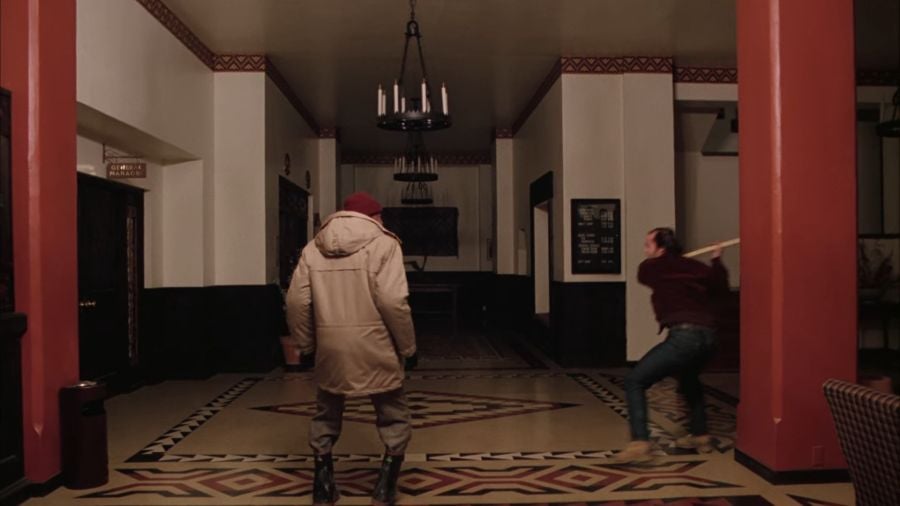
CJW: Hallorann has returned to the Overlook Hotel and is creeping through the place calling out. The only person that hears him though is Jack, and he is not feeling particularly hospitable.
The above article talks about the othering of Hallorann, but I think it misses an opportunity to further discuss the meta-narrative about racism explored through Hallorann’s death. He’s presented as Danny’s only hope, and his appearance at this point of the film could have been something of a deus ex machina, but instead he’s killed immediately, without thought or hesitation on the part of Jack. He’s shown to be completely disposable in the context of this story - it’s a story about a white family, in a hotel that acts as a beacon of depravity for wealthy white people. The evil that dwells within the hotel won’t brook any sort of interference by a Black man.
MJW: As well as this ^^, I find Halloran’s journey to the Overlook to be completely pointless when Kubrick kills him off immediately on arrival. It’s a waste of a character, and of an actor. Scatman Crothers was reduced to tears by the direction and the ridiculous number of takes Kubrick insisted on. The numerous takes served only to suck any life or spark out of the dialogue that may have been present in the script. The actors are exhausted. The words have no meaning. Nothing means anything.
It looks great though.
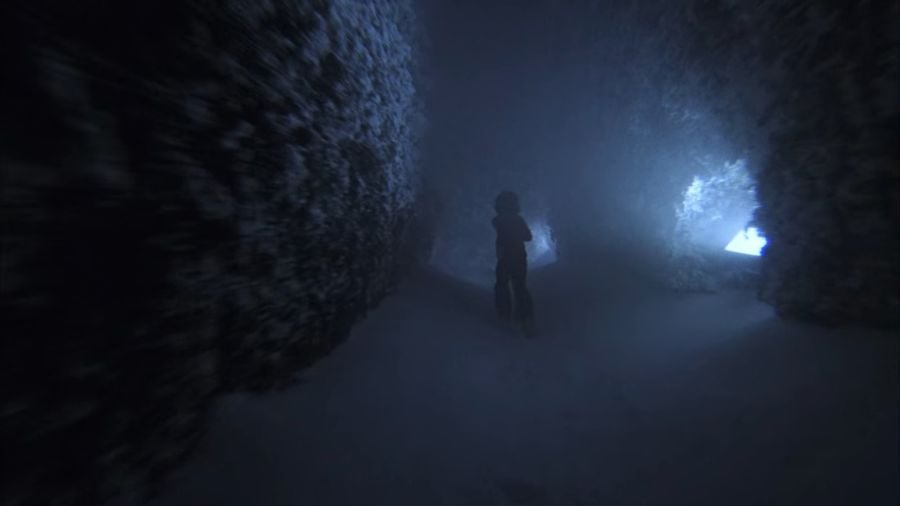
CJW: The way the camera floats and flies through the maze is brilliant.
Also, we see here that even though Jack is an intelligent man, with the spirit of the hotel itself assisting him, he still loses this round of ‘Are you smarter than a 5th grader?’ (more like 1st or 2nd grader, I think) when he’s outsmarted by Danny’s little back-stepping trick. Smart kid. Maybe Jack would be proud if he wasn’t engulfed by an incandescent rage.
MJW: Or engulfed by snow, motherfucker.
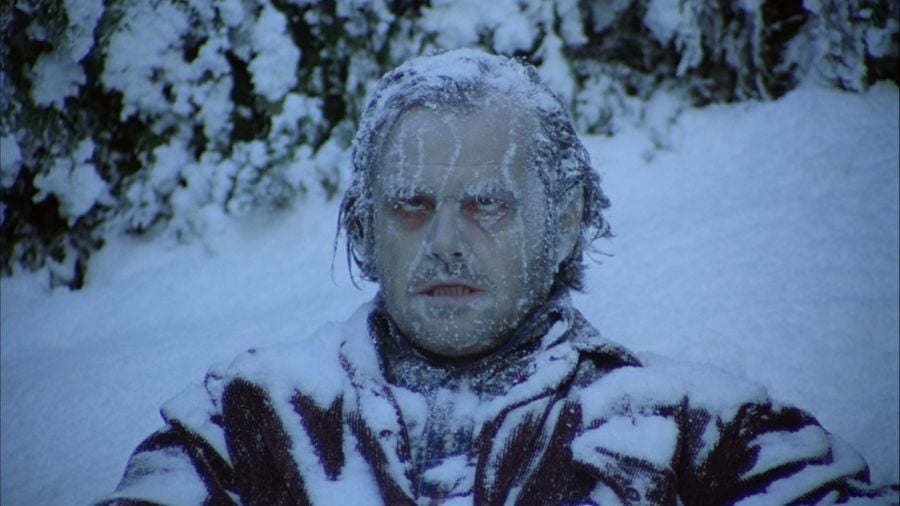
CJW: Another iconic image as Jack succumbs to the cold.
MJW: Stephen King said something about how his version ends in fire and Kubrick’s ends in ice and I feel like that says something.
DCH: Kubrick thought people were ignoble savages and I think that pessimistic worldview is why Jack is a monster from the jump and we’re not afforded the comforts and sympathies of a more compelling backstory.
Man isn't a noble savage, he's an ignoble savage. He is irrational, brutal, weak, silly, unable to be objective about anything where his own interests are involved—that about sums it up. I'm interested in the brutal and violent nature of man because it's a true picture of him. And any attempt to create social institutions on a false view of the nature of man is probably doomed to failure.
No redemption here, mate. At least this time evil got fucked. Until a new caretaker is born again…
CJW: And there we go.
I hope your NYE is warmer than Jack’s, that the people close to you don’t snap and come after you with an axe, and that 2024 is filled with great and exciting things for you, and for all of us.
And thanks for joining us for another year.
You just read issue #243 of Nothing Here. You can also browse the full archives of this newsletter.